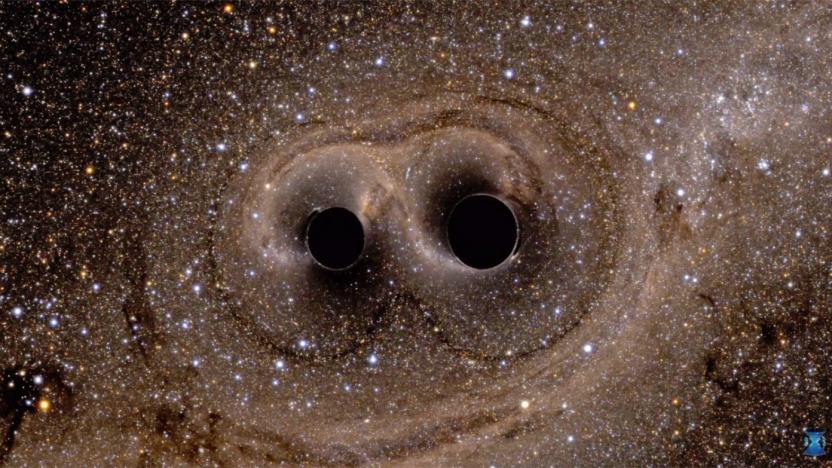Ligo
Latest

Gravitational waves are our window into the early universe
"We have detected gravitational waves. We did it," David Reitze, executive director of the Laser Interferometer Gravitational-Wave Observatory (LIGO), said at a press conference in Washington on Thursday. Reitze has good reason to be excited. LIGO's find is a huge, Nobel Prize-worthy accomplishment on par with CERN's discovery of the Higgs particle in 2012. Just as Higgs particles revolutionized the standard model of physics, gravitational waves are set to do the same to Einstein's theory of general relativity. Simply put, it will fundamentally alter how we view and interact with the universe around us.

Science confirms that gravitational waves exist
At last, scientists have validated a key part of Einstein's general theory of relativity. The National Science Foundation, Caltech and MIT have confirmed the existence of gravitational waves, or ripples in spacetime. Their two LIGO (Laser Interferometer Gravitational-wave Observatory) detectors measured atomic-scale differences on September 14th, 2015 that point to the collision of black holes (also a new discovery) 1.3 billion years ago, triggering gravity ripples that only just reached Earth. There have long been hints of these waves, but hard evidence has proven elusive until now.

